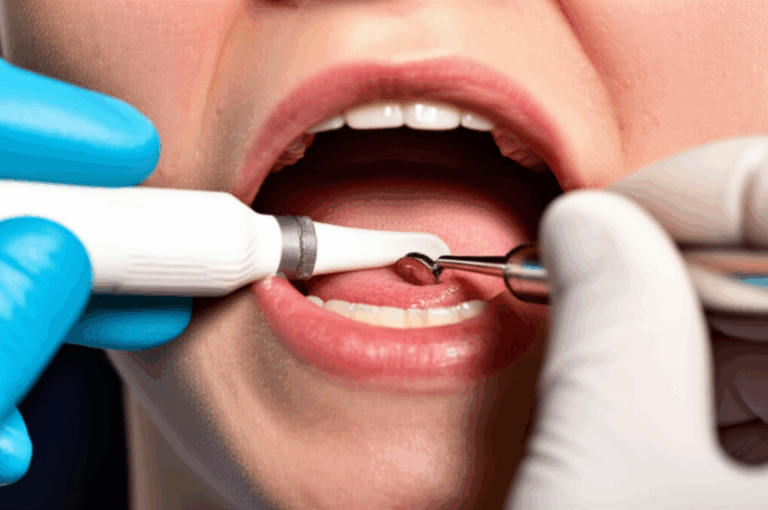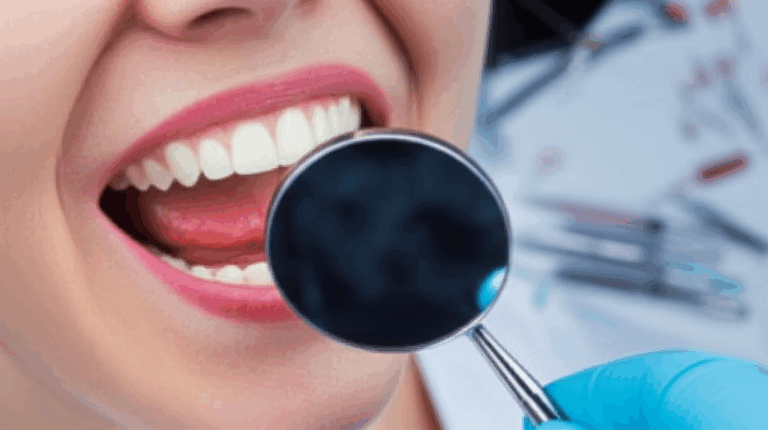
Is a Dentist a Physician? Unpacking the Roles of Oral and General Health Professionals
Table of Contents
- What Makes a Physician?
- Education and Licensing for Physicians
- Inside the Dentist’s Role
- Training and Regulation: The Dentist’s Path
- Degrees and Titles
- Scope of Practice
- How the Boards Differ
- The “Doctor” Title
- Overlapping Skills and Responsibilities
- Advanced Specialization in Both Fields
- The Oral and Maxillofacial Surgeon Conundrum
- The Systemic and Oral Health Connection
1. Introduction: My Journey With This Question
I can’t count how many times friends have asked me, “Are dentists real doctors? Are they physicians? What’s the difference anyway?” At first, I honestly wasn’t sure how to answer. Both get called “doctor.” Both wear white coats, go through a ton of school, and can use anesthesia to numb you up. But that “physician” label seems to confuse people. I used to think every doctor was a physician and that they were the same thing. Turns out, it’s not like that.
I started to see it clearer when I really looked into what each job involves, how they train, and what a day looks like for both dentists and physicians. The lines are drawn, but there’s some surprising ways they work together. To understand it all, I asked professionals, checked official websites, and even shadowed in both a dental and a medical office.
If you’ve ever thought, “Is my dentist a physician?” let’s figure it out together. Here’s what I found out, starting with what it means to be a physician.
2. Defining a Physician: The Broad Scope of Medical Doctors
What Makes a Physician?
When you walk into your family doctor’s office, you’re seeing a physician. Physicians can be general doctors, heart doctors, kid doctors, or surgeons. What they all have in common is that they are trained to find out what’s wrong, treat, and try to stop diseases that can affect any part of your body, from your head to your toe.
A physician has to look at everything. I remember talking to Dr. Sam, one of the busiest family doctors I met. She said, “Our job is to see the whole picture.” And she’s right—physicians get trained to notice all kinds of clues and care for the whole body.
Education and Licensing for Physicians
One thing that really stands out: becoming a physician means a lot of schooling. Here’s how it usually goes:
- Four years of college with a lot of science
- Four years of medical school, with labs and working in hospitals
- At least three to seven more years in a residency (this is where they focus on learning by doing)
- Sometimes more years if they want to be a specialist (like a brain surgeon or a heart doctor)
After all that, you have to pass hard tests from your state’s medical board before you can hang up your sign with MD (Doctor of Medicine) or DO (Doctor of Osteopathic Medicine). All that time and work is why people trust physicians so much.
3. Defining a Dentist: Specialists of Oral Health
Inside the Dentist’s Role
Dentists are doctors, too—but in a different way. I won’t forget my first time shadowing Dr. Joe Dental, a dentist with years of experience. He greeted everyone by name and remembered small details, but his real focus was the mouth, teeth, gums, jaws, and nearby face parts.
If you have a toothache, a chipped tooth, or gums that bleed, Dr. Joe is the one to see. He figures out what’s wrong in your mouth, does cleanings, pulls teeth, does root canals, fixes up smiles, and helps send stuff off to a crown and bridge lab or even a digital dental lab for really exact crowns.
Dentists usually don’t do much if you have problems with your heart, lungs, or other organs—unless it’s got something to do with your mouth, too.
Training and Regulation: The Dentist’s Path
Dentists have a tough road, too. Here’s the usual path:
- Four years of college
- Four years of dental school, ending with either a DDS (Doctor of Dental Surgery) or DMD (Doctor of Dental Medicine) degree. Yes, they mean the same thing—schools just use different letters.
- If a dentist wants to go further—like become an orthodontist or oral surgeon—they stay for another two to six years of training.
After that, they have to pass exams for the state dental board (which is not the same as the medical board). Dentists, just like physicians, keep learning new things to stay up to date.
4. Key Differences: Education, Scope, and Focus
Degrees and Titles
When I looked at the degree names, it finally made sense:
- Physicians: MD or DO
- Dentists: DDS or DMD
Physicians learn about the whole body. Dentists dive deep into just the mouth and face area.
Some people say, “A DDS is a doctor, too.” True—they did a doctor-level program. But when it comes to rules and what most people call them, “physician” only goes to MDs and DOs.
Scope of Practice
Physicians spend their lives figuring out and treating all kinds of sickness and injury, doing blood tests, X-rays, surgeries big and small, and handling anything from a broken bone to thyroid problems. Dentists are the go-to for cavities, sore gums, checking for mouth cancer, and fixing teeth and jaws—plus serious mouth care if they pick a specialty.
Dr. Joe once told me about a patient with headaches that turned out to be a tooth infection, not a sinus issue. Sometimes the lines get blurry, but mostly, physicians look at the whole body, dentists at the mouth.
How the Boards Differ
Each job answers to its own group:
- Physicians: State Medical Boards
- Dentists: State Dental Boards
These keep things clear, make sure everyone’s safe, and set the rules. They take care of licenses, deal with problems, and make sure learning never stops.
5. Key Similarities: Why the Confusion Arises
The “Doctor” Title
Here’s where people start mixing things up: both dentists and physicians call themselves “doctor.” People think if you’re called doctor, you’re a physician. Really, anyone with a doctorate—dentist, foot doctor, chiropractor, even a teacher with a PhD—can use the title. It’s about the schooling level, not the job.
Overlapping Skills and Responsibilities
I noticed both professions:
- Find out what diseases people have (dentists for the mouth, physicians for the whole body)
- Make plans for treatment
- Do surgeries in their own areas (dentists do extractions, implants, or work on injuries; physicians do these for things all over the body)
- Prescribe medicine (dentists for mouth pain or teeth issues, physicians for almost everything else)
- Suggest ways to stop problems before they start
Both fields also have special paths—like orthodontists for braces or heart doctors for heart problems.
Advanced Specialization in Both Fields
Dentistry has about a dozen special kinds—like orthodontics, gum disease, mouth surgery, and more. Medicine has over a hundred-fifty special paths. It’s amazing how many ways you can go in both jobs.
6. Where Dentistry and Medicine Meet
The Oral and Maxillofacial Surgeon Conundrum
Have you heard of oral and maxillofacial surgeons? Sometimes they’re called “dual degree” doctors, because after dental school, they also finish medical school and get an MD. Why do they do that? Their job—like fixing broken faces or removing face tumors—fits into both dental and medical work. In these cases, a dentist really can also be a physician! One oral surgeon I met said his training took more than ten years.
The Systemic and Oral Health Connection
Here’s another connection: Studies and real-life stories show what happens in your mouth can affect your whole body. For example, gum disease can double your chances of a heart attack or stroke. People with bad diabetes are much more likely to have serious gum trouble. I followed a gum specialist who teamed up with a diabetes doctor to help a patient. They fixed both his blood sugar and his teeth. That made me realize dental care isn’t just about smiles—it’s a big part of staying healthy.
If you ever need a new organ or a big heart surgery, your doctor might send you to the dentist first or after, to keep infections away. Your mouth and the rest of you are really connected!
7. Case Studies and Real-World Examples
Let me tell you a few stories that stayed with me:
Case 1: Complex Facial Injury
A friend’s brother broke his jaw in a bike crash. He needed a special surgery. The team was both an oral and maxillofacial surgeon (who had both DDS and MD degrees) and a trauma surgeon. They worked together to fix the jaw, manage sleep medicine (anesthesia), and plan how he’d get better. Neither could have done it as well on their own.
Case 2: Diabetic Patient With Gum Disease
I watched a visit between a gum doctor and a diabetes doctor. The patient had out-of-control diabetes and really bad gum disease. The doctors worked together to change his medicine and treat his gums. A few months later, his sugar was better and his teeth were healthier.
Lab Collaboration:
Today, I’ve seen dentists and their teams work with really sharp digital dental lab technicians or dental ceramics lab pros to make great tooth repairs, which bring back smiles and help people feel better about themselves. These partnerships between dental, lab, and sometimes even medical professionals, show how both areas work together.
8. Conclusion: How I Came to Appreciate Both Professions
Looking back, here’s what I know for sure: Dentists aren’t physicians, but they are doctors. They train for a long time and focus on a really important part of your health. Doctors and dentists take different school paths, do different things, and have different licenses, but both work really hard to help people like you and me.
I respect how much work and care both jobs require. Whether you’re at the dentist or your family doctor, you’re being looked after by a true professional. Sometimes, they even join forces to give you the best care.
So next time somebody asks, “Is a dentist a physician?” I can answer sure: No, but both are doctors, both matter a lot, and both deserve our respect.
Reviewed by Dr. Joe Dental, DDS/DMD—experienced practicing dentist and consultant in oral-systemic health.








